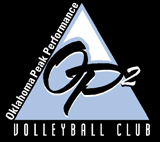There has been a lot of press lately about diets. The problem with many diets is they are not nutritionally complete. The Atkins diet, for example, which does not emphasize the need to keep your diet low-fat, is one of these. So what makes up the basic daily diet that is nutritionally sound. Here is an overview. I include more detail in individual areas and then discuss augmentation to accommodate exercise and performance and finally some examples, menus, etc.
Proteins:
Protein is an important part of any good diet and I advise the intake of good quality protein such as chicken, turkey and fish. Lean red meat is acceptable when chosen carefully . Eat a lot of fresh fish, lean turkey and chicken. When you buy fish try to purchase deep water fish and/or cold-water fish. Think carefully about where the fish was caught as some areas are obviously more polluted than others. The Gulf of Mexico as opposed to the coast of Alaska for example.
Fish is usually poached, grilled or baked. Chicken and turkey is usually baked, roasted, grilled or barbecued. If oil is needed it is as little as possible. Good quality stainless cookware will help with this. No deep fired food at all, and the only sautéing is usually done in a Wok with very little oil. Keep your protein source low-fat. No hamburgers, no bacon and certainly no fried foods of any kind.
Carbohydrates:
Carbohydrates include all sugars, starches, grains, beans, fruit and vegetables. Some of the basic ideas of the Atkins’ diet are correct. Excess carbohydrates are more readily stored as bodyfat. If you eat more carbohydrates than the energy you require, you will put on bodyfat. So to lose bodyfat you must do two things. Eat carbohydrates that are not easily stored as bodyfat and exercise sufficiently to make the body use stored bodyfat as an energy source.
Everyone should get all their carbohydrate needs primarily from fresh vegetables and fruit, preferably organic. With every meal have either a fresh salad or steamed vegetables along with some fresh fruit. Eat low-nutrient starchy vegetables such as white potatoes very sparingly. You can consume a large amount of fresh vegetables and never put on any bodyfat.
Eat bread sparingly and when you do, always make it a whole grain bread. The only cereal to eat is old-fashioned oats, or very minimally processed boxed cereals. Eat only small amounts of whole-grain pastas. Occasionally eat wild or brown rice, rarely white rice. Eat fresh unshelled nuts such as walnuts and enjoys organic pumpkin and sunflower seeds. These choices are high in essential fats.
The amount of and types of carbohydrate you eat are also determined by your lifestyle, age and exercise level. Endurance athletes require more carbohydrates than “couch potatoes” as their energy needs are much higher. So determine your carbohydrate needs for your own lifestyle and you will be able to enjoy that lovely pasta dinner on an evening out without putting on excess bodyfat.
As we get older and our insulin metabolism becomes less efficient we need to make sure that we choose carbohydrates that are low-glycemic.
Fats:
A diet low in saturated fats is very important for overall health. A high saturated fat diet will cause cardiovascular disease. You must get your essential fats daily. Use organic flaxseed oil that you can use as a base for your salad dressings. For cooking when necessary use small quantities of organic extra-virgin cold pressed olive oil. Both these oils contain good essential fats.
This was something that Dr. Atkins did not understand. It was reported over the AP Wire that Dr. Robert Atkins, who died recently, weighed 258 pounds at the time of his death. Before his death, he suffered a heart attack, congestive heart failure and hypertension. Not only was he not following his own advice to maintain a good weight and low bodyfat, but his idea of not worrying about saturated fat intake certainly did his health no good.
Dietary Philosophy
It is a fact that we are biochemical machines. The "bio" is important as that distinguishes us from mechanical machines. The difference is that our bodies adapt to stress and, if the stress is correctly applied and enough support is provided nutrition and rest, then the adaptation will be one that will be a positive one. This is seen in the training that you are doing. Exercises apply stress to the body that allows it to grow stronger, move faster and support better health and well being. Mechanical machines do not do this. We, adapt to the stressors. We also adapt to the lack of stress. If our environment is sedentary, then the body adapts to that and becomes strong enough to maintain a sedentary lifestyle. It has been found that the genes that degrade the body are more active in the sedentary state and those that favor repair are active when we are active.
BUT!!!
The response to a stressor is only one that provides repair and growth if enough material is there. Let us imagine for a moment that a tree falls and tears down a part of your home. You are the repair mechanism for your home, but you cannot act unless you have the materials that include wood, nails, sheetrock, etc AND the time. In the biochemical machine, your materials are provided from what you eat and the time needed to repair is in the form of rest and sleep.
So it is possible to think of food intake as only a source of energy, but this is a GRAND and all-too common mistake. Food is fuel and it MUST be a source of the nutrients, macro (carbohydrates, proteins, fats, fiber) and micro (vitamins, minerals, essential oils, etc.). One must be cognizant of the inalterable fact that food is nutrition. You, as athletes, must be especially aware as you need to optimize your nutrient intake to maximize performance and minimize illness and injury, common traits of poor eating.
So, what to eat?
We have in our wonderful, modern world an odd enigma, known as the discordance principle by those that study this. Were we a hunter-gatherer society, we would not have to think about what is best to eat. It would be provided in the correct amounts already in the world around us. You see, we have developed over millions of years based on foods found on this earth that include a wide variety of foods from animal and vegetable sources. The problem is that our genetics haven't caught up with the explosion in society and the subsequent change in our food supply. There is an interesting history in our changing food supply resulting in the current free market providership system. We now hunt and gather by buying from food suppliers. In order to compete for sales, food manufacturers use techniques that enhance the taste, smell, appearance and image desire of foods to get you to buy. The old ad that said "You can't eat just one" applies as the industry knows what flavors and chemicals induce cravings. The bottom line is that foods are designed without any attention to nutrition. Ironically, the foods that ARE the best and most nutritious are not marketable because there is nothing unique about fresh spinach to exploit in sales. To grow profits, it was found that the population was not growing fast enough (numbers-wise). Therefore, the only way to increase sales is to sell more to each person. The result is an increase in the population size-wise!
Thus, we have to ignore what the ads that entice us have to say and get back to the nutrition FOR WHICH OUR BODIES ARE DESIGNED! Some wonderful work has been done by researchers at Emory University , Colorado University and others that have found societies that still eat and live in the style in which we were designed. Some of these societies are extremely isolated. They are very strong, very active people and have no indications of heart disease, diabetes and many of the modern disease processes. In short, they are eating in a manner that we ALL are genetically designed to eat.
As it so happens, as each day passes, the successful and healthy diets are falling towards this pattern. There is more mention of whole foods, the need to limit simple sugars and included more fruits and vegetables. Why not look at what we were designed to eat, what made us grow strong and healthy as a species and what has a million-year track record of success? The evidence is there.
Do we ignore modern foods?
Emphatically, NO! We have at our disposal, information that can help the athlete and still fits within the body design. In fact, recently, a highly respected paleo scientist, Dr. Loren Cordain and a very successful Olympic coach, Joe Freil, have teamed up to make recommendations to the athlete for optimum performance and health. Interestingly, their recommendations are well in keeping with highly successful coaches and trainers including Chris Carmichael, coach to Lance Armstrong. (See the reading list for both of these excellent books) The judicial use of supplementation and whole foods will provide a menu of options that will be nutrient rich and provide enough energy to support your active life. You will find yourself getting strong, lean and energetic.
If you continue on this site, I will attempt to provide you with a powerfully rich diet that will allow the training and rest to be put to it's best use. If the browser wishes to go further or to ask why I make such recommendations, I will attempt to include optional links to the evidence. As always inquiries, recommendations and discussion is encouraged! Contact me at your desire!
Dr. Mike Jezercak, Ph.D

